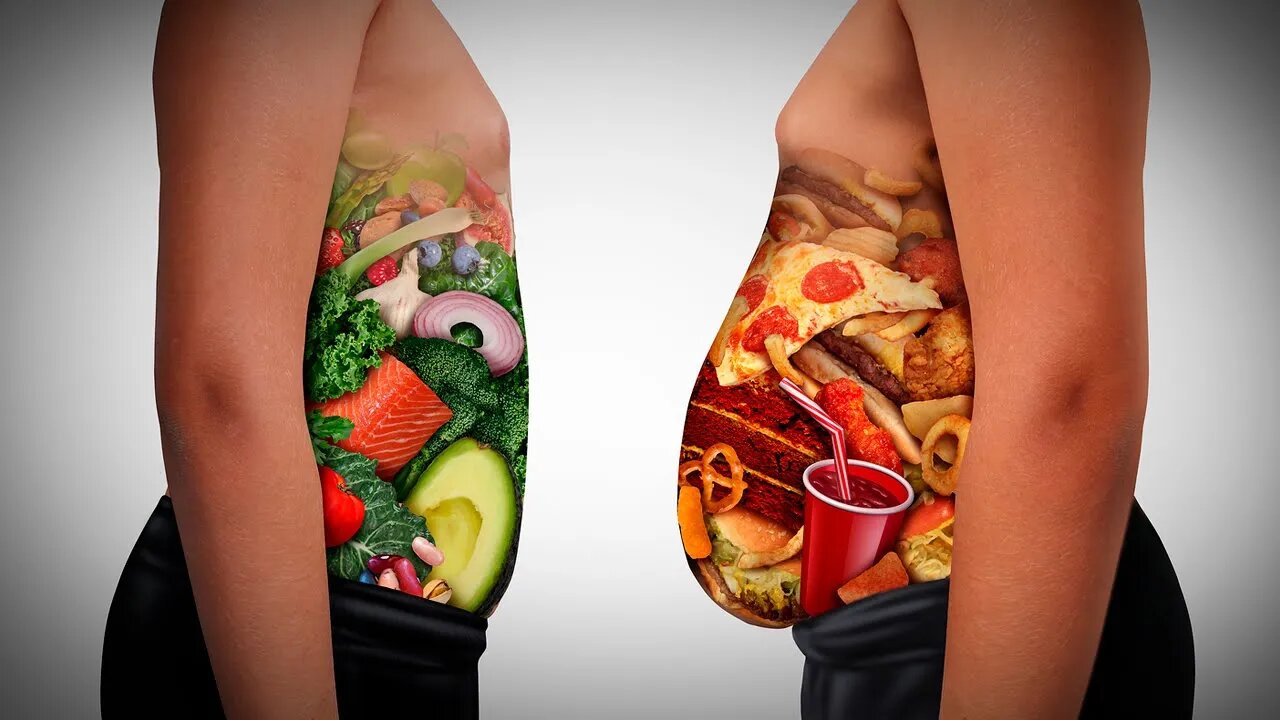Premium Only Content

Your Diet Could Be Harming Your Immune System
Are you trying to lose weight?
Did you know that, during moments like the one we are living now, when we stay at home because of a pandemic or when we are in the middle of a flu season, losing weight might not be the best thing to do?
According to researchers, diets based on caloric restriction, like low-carb, Dukan, detox, cutting, and others that favor a reduction of caloric intake might harm your immunity and leave your body more vulnerable to viruses and bacteria.
Besides that, a diet that is low in calories can also result in issues like anemia, deficiency of vitamins and minerals, and cause weakness, dizziness, lack of energy, and general malaise.
If you have ever gone on a restrictive diet or one of the diets cited above, you know quite well how it can affect your body and even your mood.
According to researchers, restrictive diets put your body in an alert state, that affects the body as a whole since they increase the release of cortisol (stress hormone), which inhibits some of the factors related to the immune response.
The best thing for you is to unwrap less and peel more!
So, in a time like the one we are living now, it is necessary to avoid these kinds of diets and seek specialized help for things like emotional eating, weight gain, excessive or compulsive overeating. Besides that, if you have the flu or a cold, eating healthily is even more necessary.
Take your time and watch our video of shots that can contribute to your immunity. Try them and share your opinions with us.
----------------------------------------
Facebook: https://bit.ly/38BWbw3
Pinterest: https://bit.ly/2Irvwa6
Disclaimer: The materials and the information contained on Natural Cures channel are provided for general and educational purposes only and do not constitute any legal, medical or other professional advice on any subject matter. These statements have not been evaluated by the FDA and are not intended to diagnose, treat or cure any disease. Always seek the advice of your physician or other qualified health provider prior to starting any new diet or treatment and with any questions you may have regarding a medical condition. If you have or suspect that you have a medical problem, promptly contact your health care provider.
-
 3:55
3:55
Natural Cures
1 year ago $0.93 earnedDrink This Tea Tonight to Flush Out All The Toxins from the Body
3.82K4 -
 LIVE
LIVE
Greenfield Productions
26 minutes agoUndisputed Elden Ring Champion
56 watching -
 LIVE
LIVE
VOPUSARADIO
1 day agoPOLITI-SHOCK! "EXPOSE & DESTROY TYRANNY" W/ DR. SIMONE GOLD & SHAZ KHAN!
36 watching -
 1:03:30
1:03:30
BonginoReport
3 hours agoBiden’s Autopen Scandal & His Power-Hungry Wife - Nightly Scroll w/ Hayley Caronia (Ep.58)
46.7K23 -
 46:38
46:38
Donald Trump Jr.
3 hours agoBreaking News on Tariff Legal Fight, Plus Rubio State Dept Delivering More Major Wins | Triggered Ep245
93.9K64 -
 7:05:38
7:05:38
Dr Disrespect
10 hours ago🔴LIVE - DR DISRESPECT - WARZONE - NEW SEASON 4!
102K8 -
 LIVE
LIVE
MyronGainesX
5 hours ago $3.94 earnedDiddy Trial, UK Charges Tates, Democrats DESPERATE For Male Voters, Judge Blocks Trump Tariffs!
1,678 watching -
 LIVE
LIVE
Bitcoin Magazine
3 days agoThe Bitcoin Conference 2025 | Day 3 Livestream
702 watching -
 LIVE
LIVE
Badlands Media
13 hours agoQuite Frankly Ep. 8
1,060 watching -
 LIVE
LIVE
LFA TV
21 hours agoLFA TV LIVE STREAM - THURSDAY 5/29/25
1,558 watching